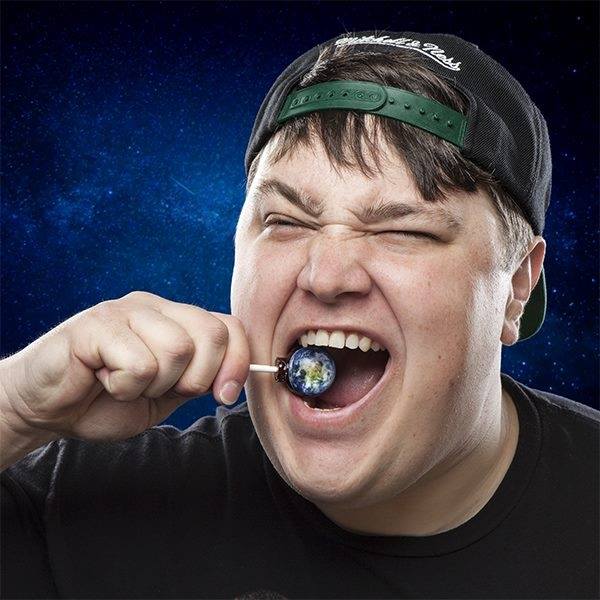How MySpace Taught Me How to Code and Where You Should Look to Develop Your Passion
Learning something new is hard. It's even more challenging if you have a hard time trying to find motivation. How can we find things in our everyday lives that can help us learn?
Tom is no longer in your extended network
It's been almost 10 years since we saw massive changes underway at MySpace. If you don't remember what MySpace was, it was the popular social network before Facebook was king (though technically still exists).
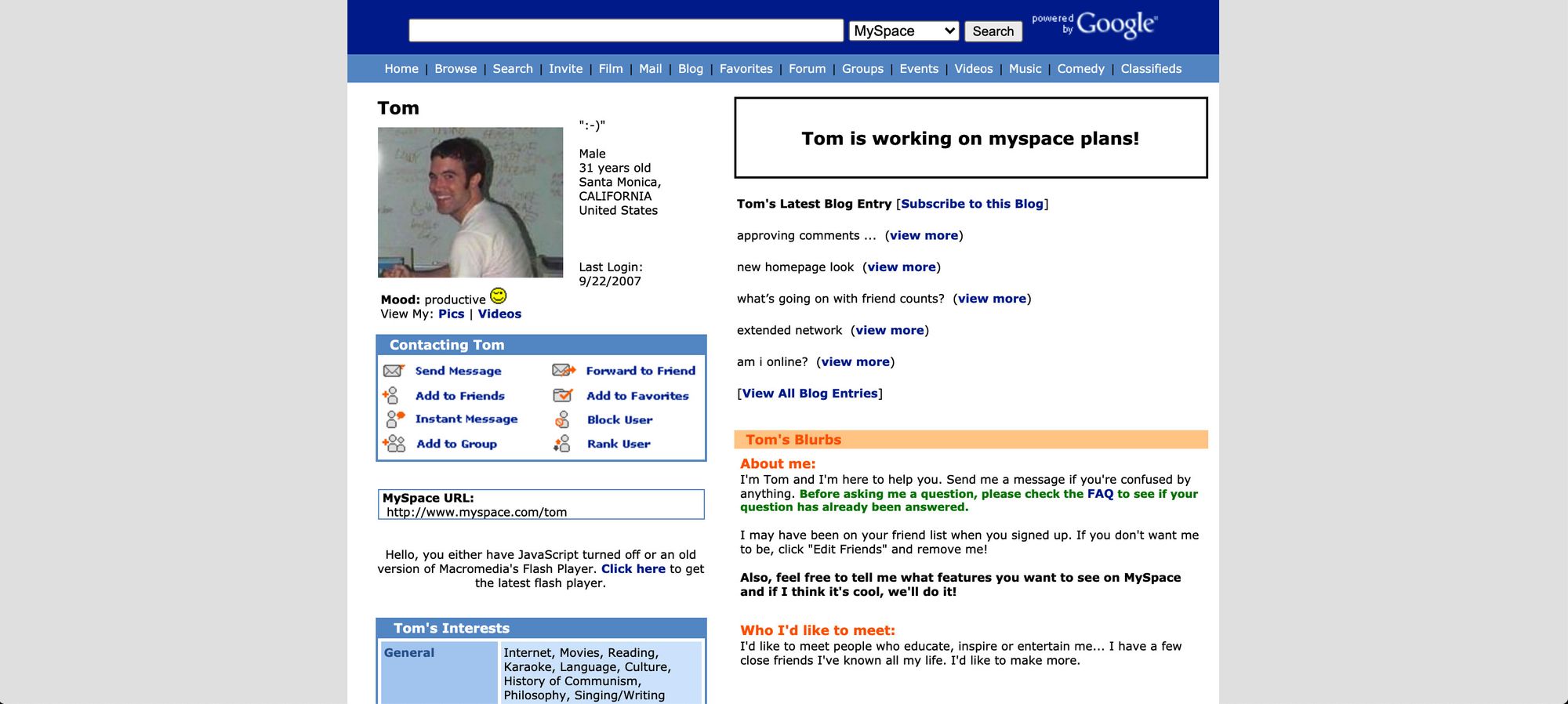
This was when everyone started with a new friend named Tom who was the co-founder of MySpace. Everyone could set their own "top 8" that could make or break the best friendships if you snubbed someone. You could also set a song for your profile which would be added as a little player, back when it was "okay" to automatically play a song when your page loaded.
But MySpace is now a thing of the past, so why am I talking about it?
Making MySpace, your space
MySpace had a unique characteristic about it that you don't see in any of the popular social networks these days — it allowed you to add HTML and CSS into the page so that you could really do whatever you want with the your profile.
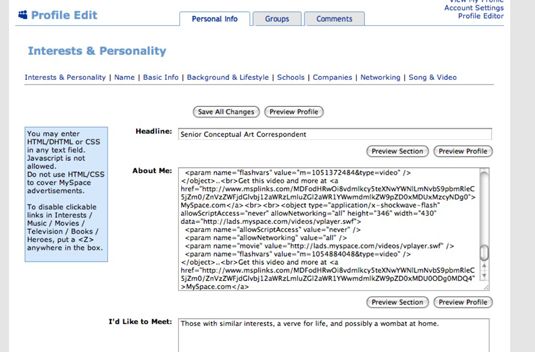
https://www.dummies.com/social-media/myspace/how-to-embed-video-in-your-myspace-profile/
Though from a simplistic perspective, this gives you some limited options. Maybe you can add some CSS that updates how the headers look and change a background color.
But realistically, this opened the door to adding full webpages that you could overlay on top of your profile by positioning your new layout above the original content with some z-indexing.
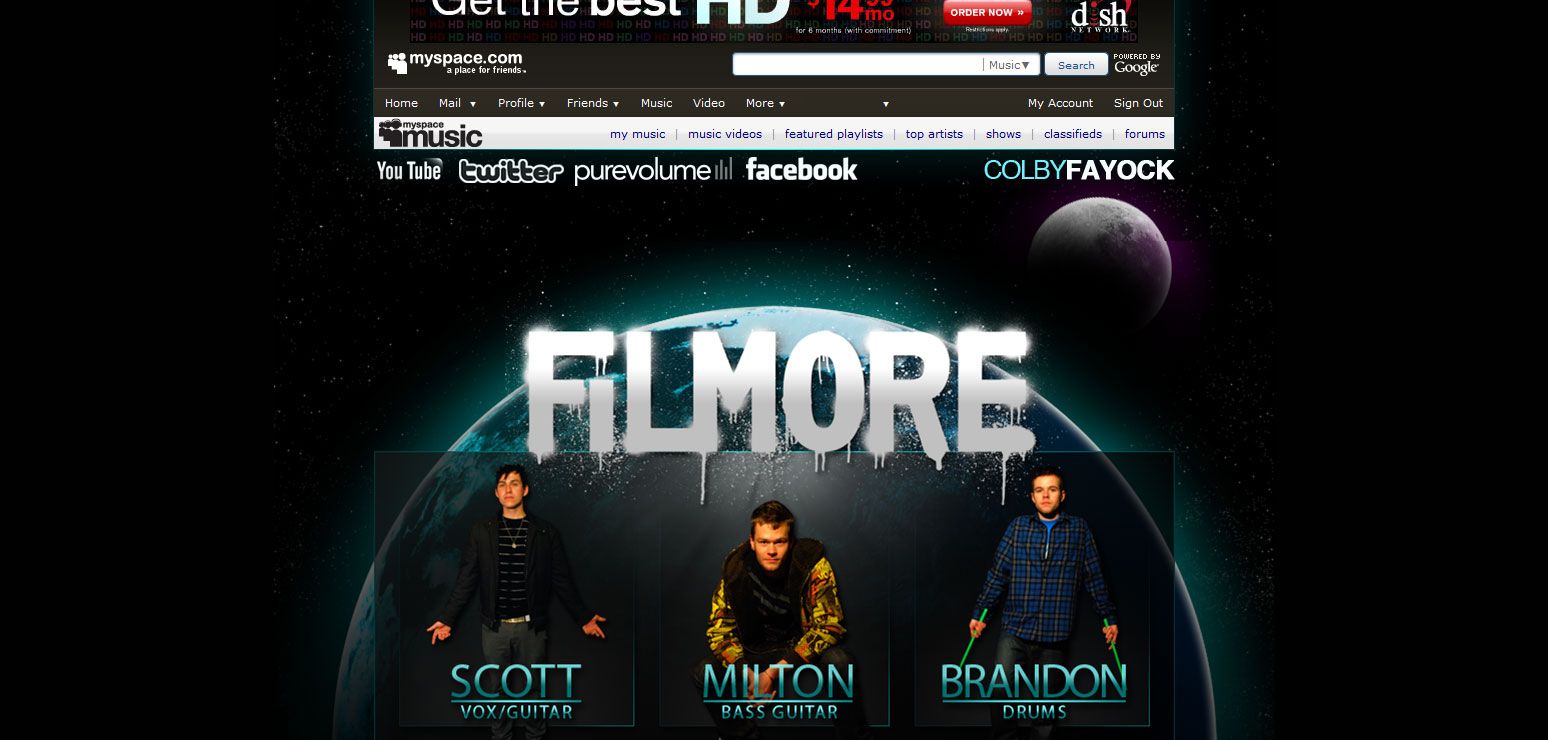
The trick was, you had a limited amount of characters that you could put in each input. That had limitations, but these limitations helped promote creativity whether it was figuring out how to strip all of the whitespace in the code or by figuring out a way to add something with less overall code.
Learning through hobbies
Building MySpace profiles was addicting! It was a social medium that you could customize to make your own and stamp your name on it to show everyone what you did. While you could do the same with your own website, it wasn't as easy at the time, where building out a profile on MySpace was easy, free, and you can connect with all of your friends.
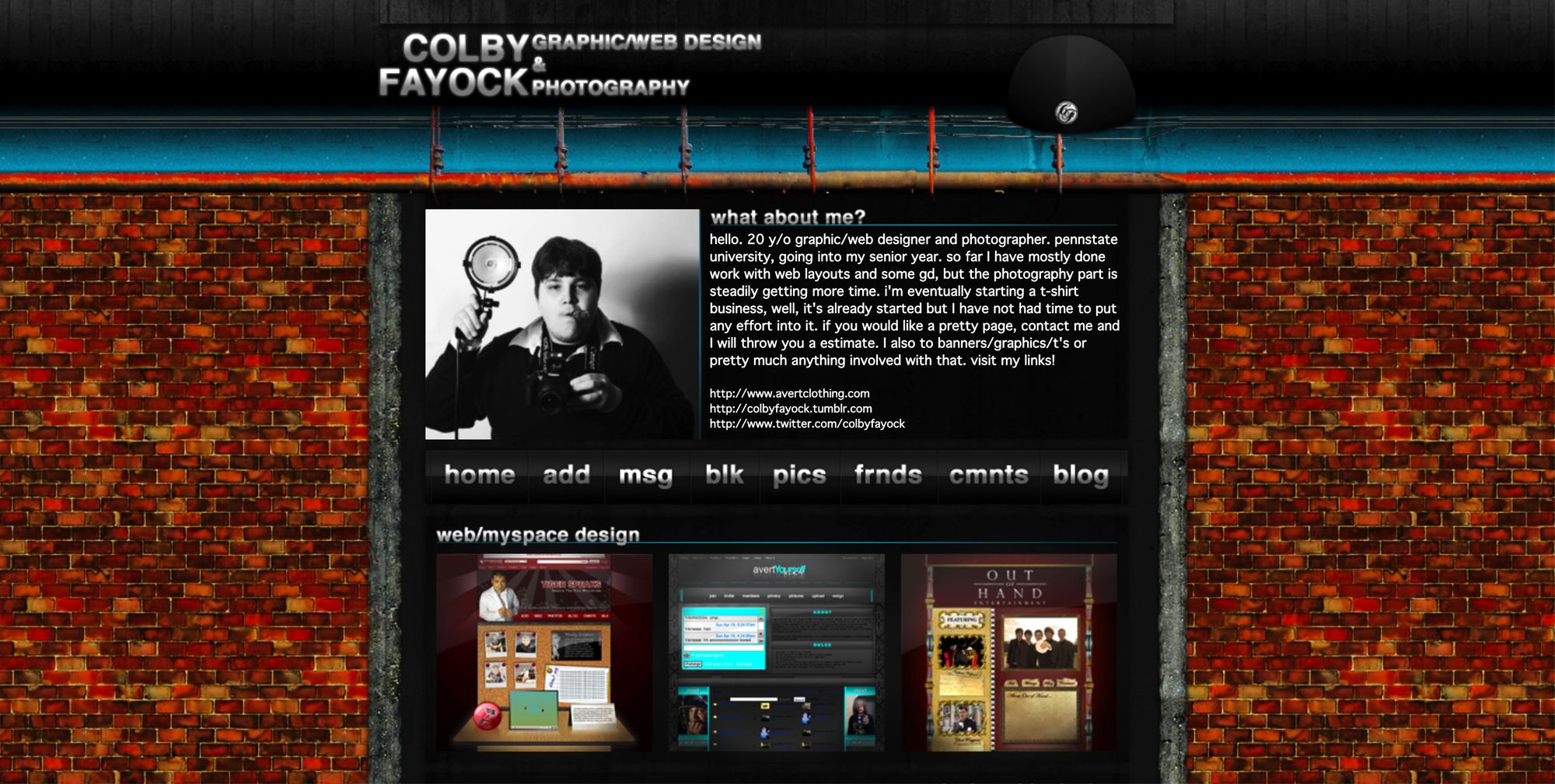
Each time I made a new page, I tried to think about what else I could do. I was even involved with small communities where we would share our work and help each other figure out how to hack things into a profile page (shoutout DM!).
This whole time, as I was trying to learn what more I could customize, I was learning how to code! I learned about how I could squeeze every inch of HTML I could out of a document and I also developed an understanding of how CSS selectors work. I also learned how positioning allowed me to do cool things on the page and how to center things back when we didn't have the option to flexbox all the things.
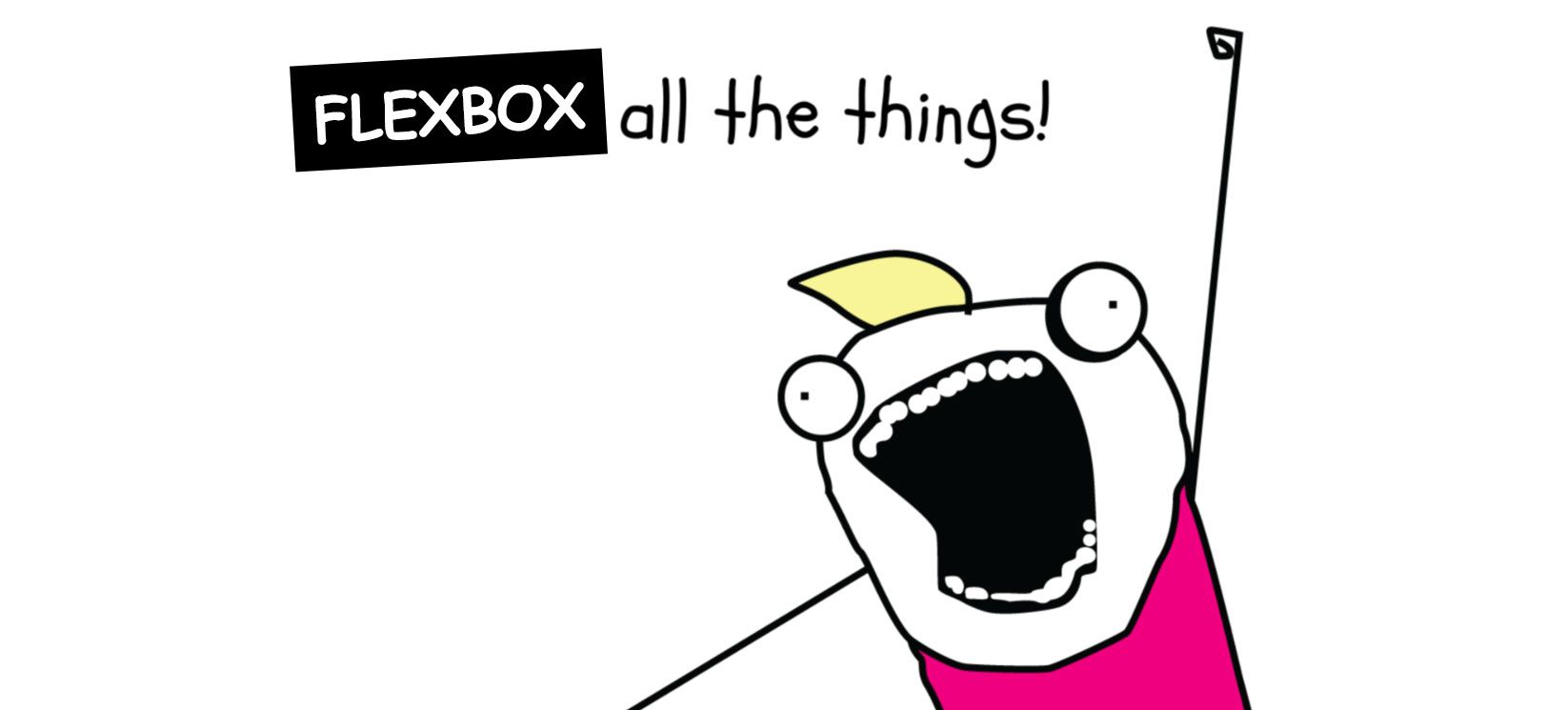
And this led to "business Colby" developing a sense of entrepreneurship. At this point, I was still in high school, but I was able to spin off a little business from building these pages. While a modest $50 per profile seems low, that's a lot for a highschooler in 2004, not to mention that was a lot of money for another highschooler to pay to get one created!
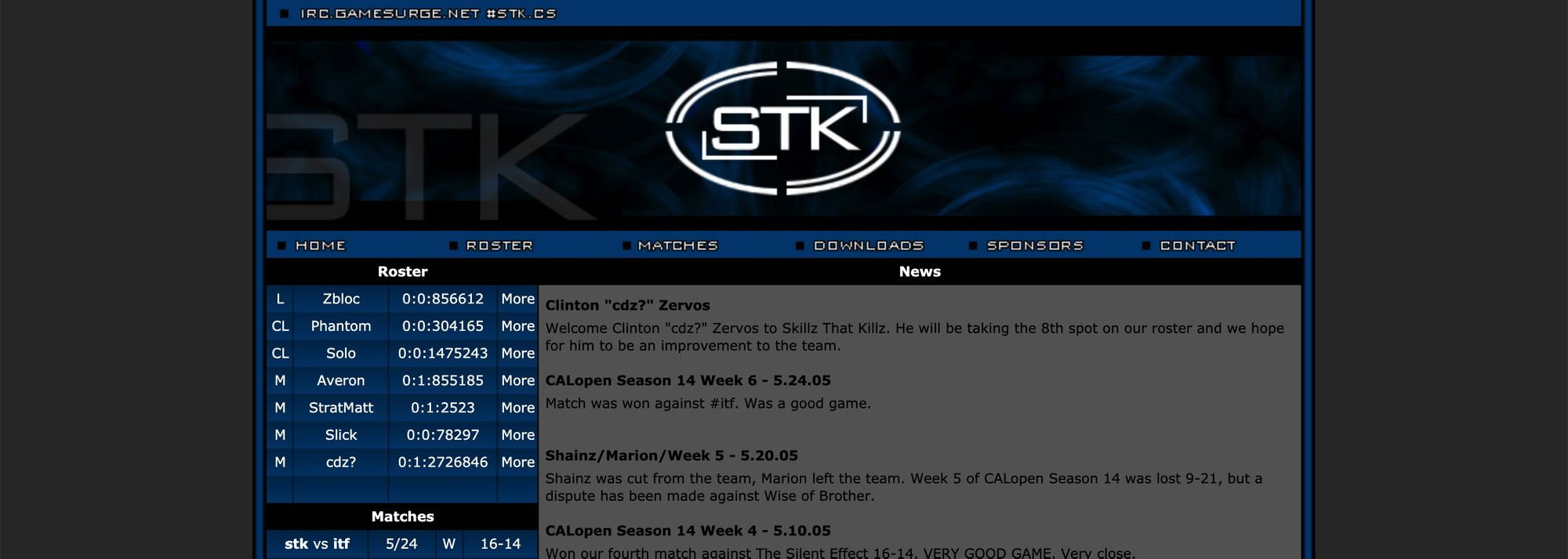
But this was the start of my code journey. Building off of MySpace, I started creating actual websites for Counter-Strike teams (CAL anyone?) and bands which would ultimately lead me to make a career out of coding.
Turning hobbies into jobs
I've heard others with a similar story, even others who similarly started with MySpace that eventually turned their interest into a coding career. While the MySpace era is something we all look back and laugh at, it really inspired a lot of people to find what they love to do.
Finding this kind of inspiration can be important to discovering how you want to spend your time. Whether it's a hobby or learning on the side to turn it into a career, keeping engaged with something you're actually interested in is important to learning a new craft.
But it's important to pay attention to how you engage with that new interest. You don't want to force it into a career and quickly burn yourself out. That will lead to regret and resentment.
While I got lucky that my interest in coding ended up turning into my career, I make sure to not "take my work home" as it's important to separate the work from your personal interests like random OSS projects on the side.
Find what motivates you
The important thing is to find something that can motivate and inspire you to develop your passion whether for a career or hobby. Each of us have our own journey, whether code related or not, and we should try to find something that will make us happy.
What was your inspiration for your interests? Share with me on Twitter!
